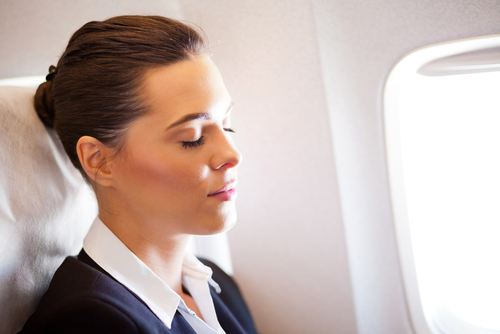Jet lag, also called jet lag disorder, is a temporary sleep problem that can affect anyone who quickly travels across multiple time zones.
Your body has its own internal clock, or circadian rhythm, that signals your body when to stay awake and when to sleep. Jet lag occurs because your body’s clock is still synchronized to your original time zone, not to the time zone where you’ve traveled. The more time zones crossed, the more likely you are to experience jet lag.
For example, if you leave New York on a flight at 4:00 p.m. on Tuesday, and arrive in Paris at 7:00 a.m. Wednesday, your internal clock still thinks it’s 1:00 a.m. That means you’re ready for bed just as Parisians are waking up. And because it takes a few days for your body to adjust, your sleep-wake cycle, along with most other body functions, such as hunger and bowel habits, remains out of step with the rest of Paris.


